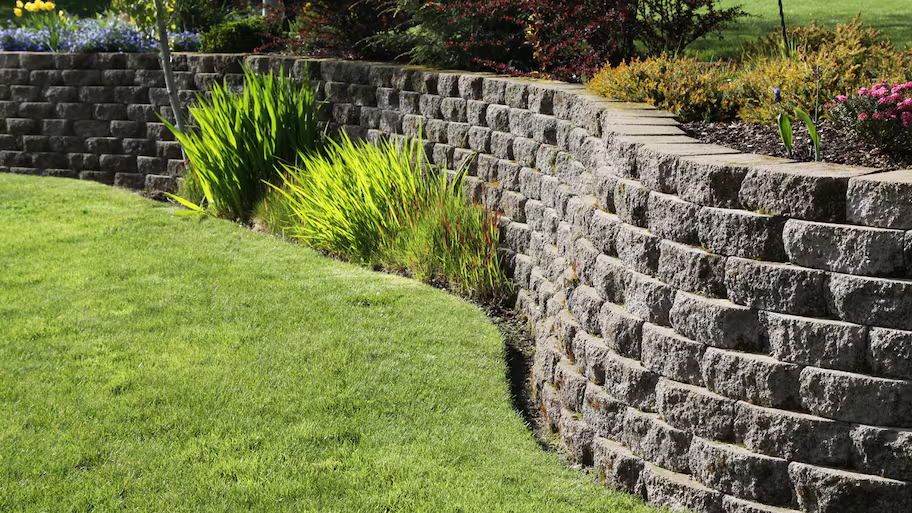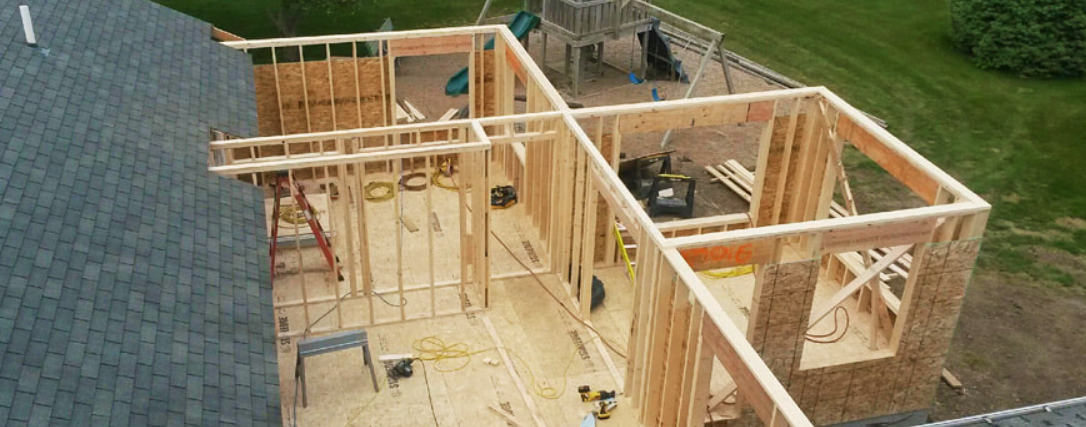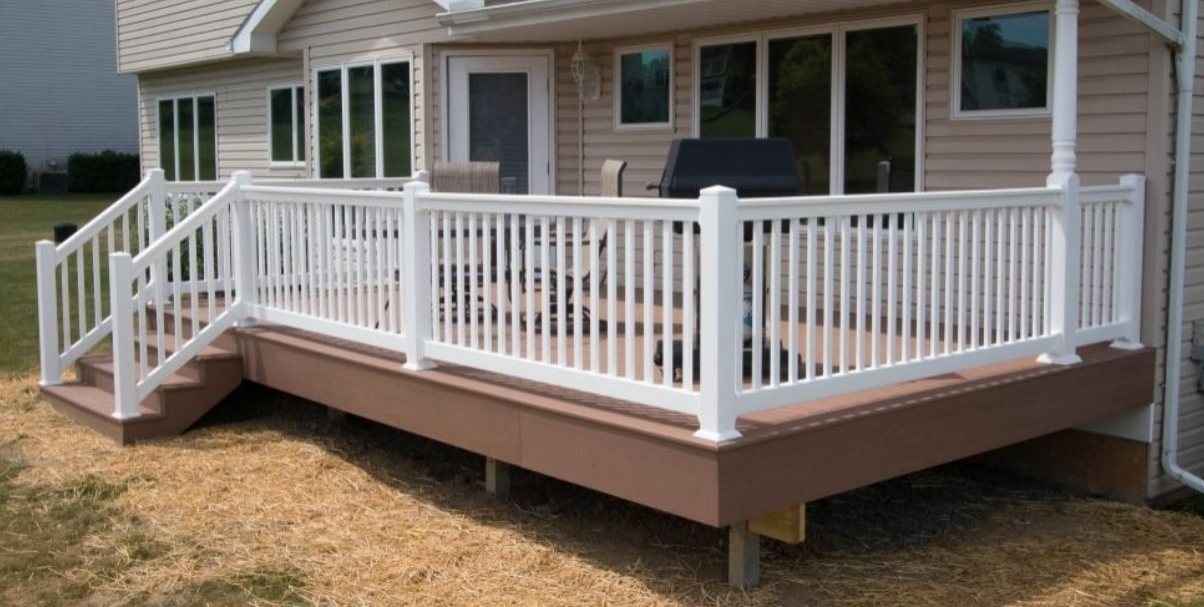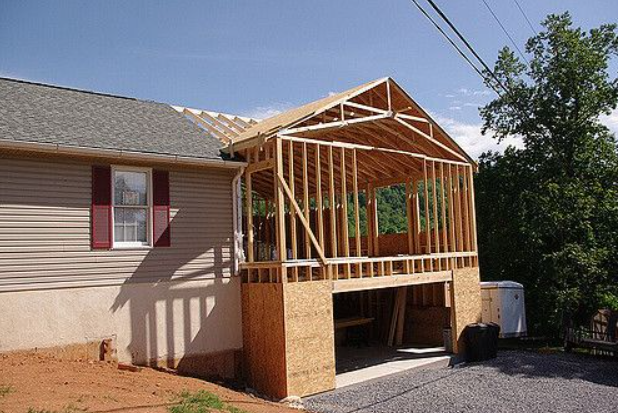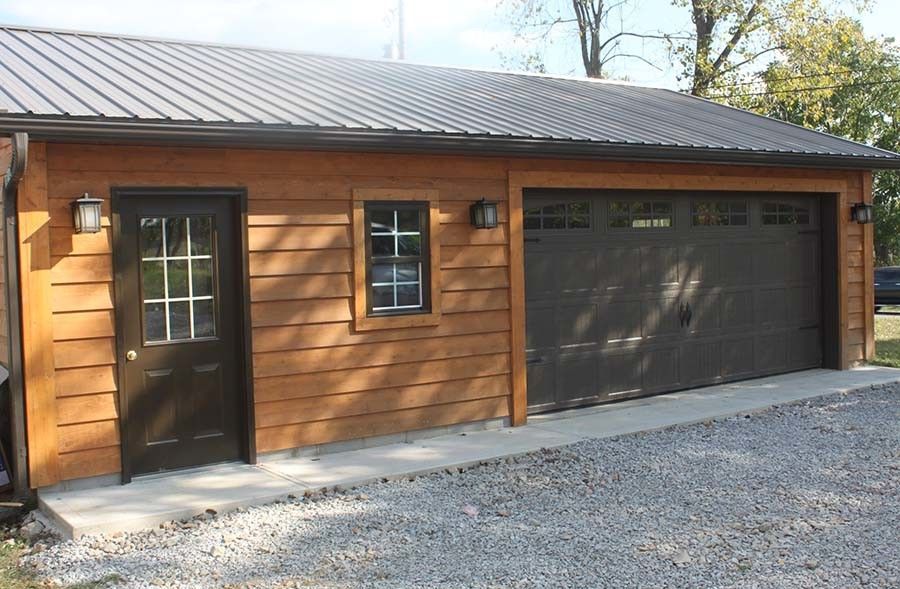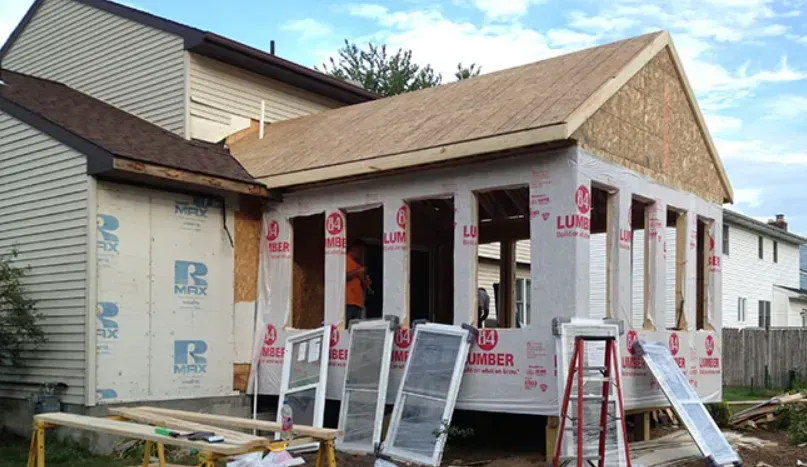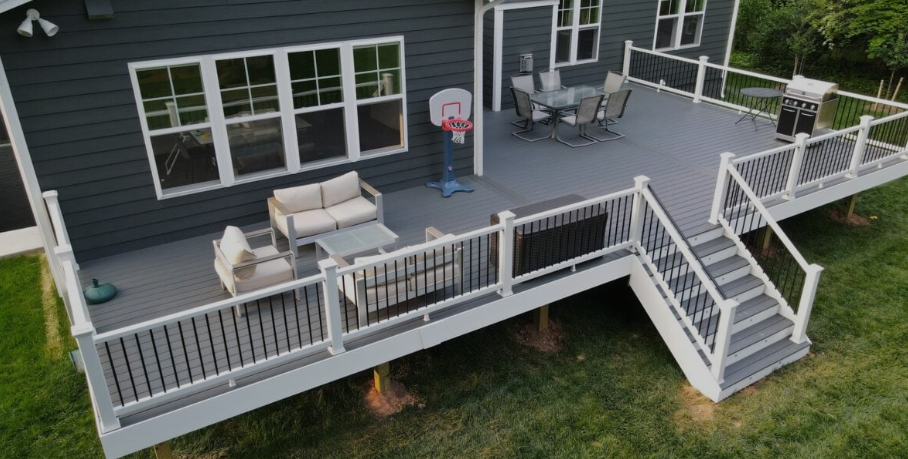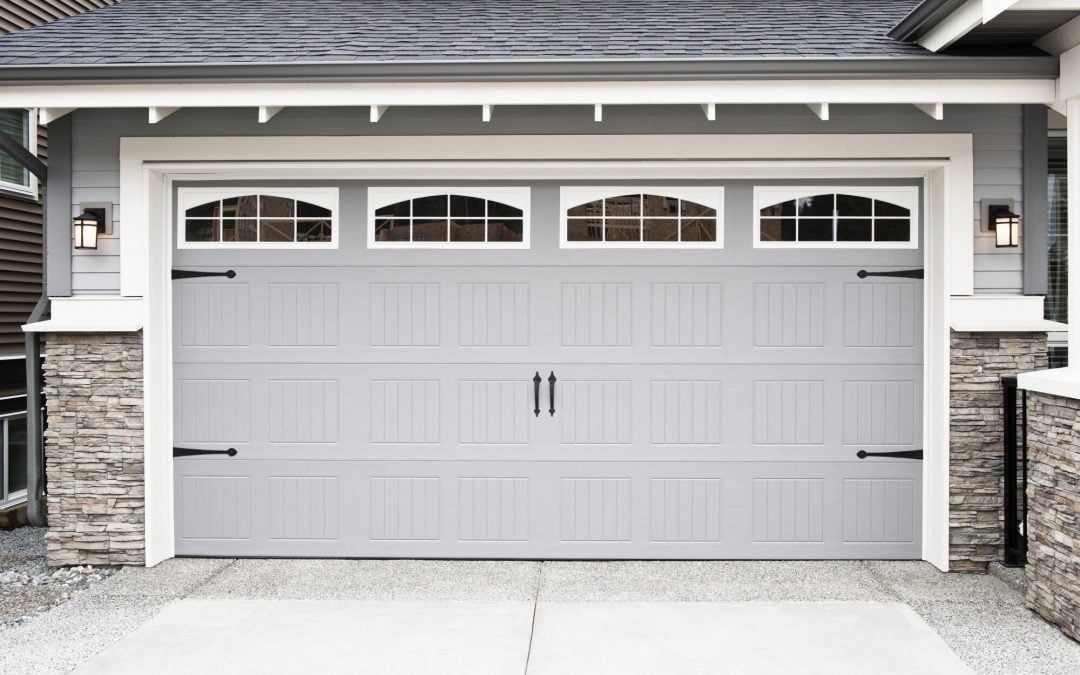Shed Removal and Demolition - Rhode Island
Old, deteriorating sheds occupy valuable backyard space throughout Rhode Island properties, from Providence urban lots to Warwick suburban yards and South County coastal homes. Whether collapsed from winter storms, rotted beyond repair, or simply unwanted after purchasing a home, these structures require complete removal and disposal. Understanding shed removal and demolition processes helps Rhode Island homeowners reclaim yard space while safely disposing of materials from structures that have outlived their usefulness.
When Rhode Island Sheds Need Removal
Rhode Island's harsh weather takes a heavy toll on outdoor structures. Winter nor'easters dump heavy snow loads that collapse weakened roofs. Spring rain and humidity rot wooden structures from the inside out. Summer heat warps materials and accelerates deterioration. After years of exposure to the Ocean State's variable climate, many sheds reach points where removal makes more sense than repair.
Collapsed or severely damaged sheds create safety hazards throughout Providence neighborhoods, Warwick backyards, and properties across Rhode Island. Sharp nails protrude from damaged boards, unstable walls threaten to topple on children or pets, and deteriorated structures attract pests seeking shelter. Cranston homeowners with failing sheds, Newport property owners dealing with coastal weather damage, and Rhode Island residents throughout the state improve safety by removing dangerous structures rather than allowing continued deterioration.
How Much Does Shed Removal Cost in Rhode Island?
Shed removal costs in Rhode Island vary based on structure size, material composition, accessibility, and disposal requirements. Small 8x10 wooden sheds typically cost $400-800 for complete removal including demolition and debris hauling. Medium 10x12 sheds run $800-1,500, while larger 12x16 or custom structures can exceed $2,000 depending on complexity and materials.
DIY shed removal dramatically reduces costs for homeowners willing to handle demolition themselves. Renting a dumpster provides affordable debris disposal - a 15-yard container measuring 12'L x 7.6'W x 4.6'H costs approximately $475 including 2 tons capacity and 7 days rental, adequate for most small to medium shed demolitions. Warwick homeowners tackling shed removal personally, Providence DIY enthusiasts, and budget-conscious Rhode Island residents throughout the state save substantially handling their own demolition work while using professional disposal services for debris.
When to Remove vs. Repair a Shed
Determining whether sheds warrant removal or repair requires honest assessment of structural conditions and intended uses. Sheds with rotted floor joists, severely damaged roofs, or compromised wall framing typically cost more to repair than they're worth. Cranston homeowners facing extensive rot, Providence property owners with collapsed roofs, and Rhode Island residents dealing with foundation failures usually benefit from complete removal rather than attempting costly repairs.
Consider future needs when deciding removal versus repair. A shed barely serving any purpose but still structurally sound might warrant removal simply to reclaim yard space. Conversely, sheds in decent condition supporting active storage needs deserve repair investments maintaining their functionality. Evaluate both current condition and future utility making informed decisions about whether removal or repair serves your situation better.
Permit Requirements for Shed Removal in Rhode Island
Most Rhode Island municipalities don't require permits for shed removal or demolition, though regulations vary by community. Providence, Warwick, and Cranston typically allow shed removal without permits as long as structures aren't connected to utilities or containing hazardous materials like asbestos. However, always verify local requirements before beginning demolition - some communities maintain specific rules about structure removal, particularly for larger buildings or those near property lines.
New construction replacing removed sheds usually requires building permits regardless of previous structure size. Planning shed replacement should account for permit costs, inspection requirements, and building code compliance affecting design and placement. Newport historic district properties, Providence neighborhoods with strict zoning, and Rhode Island communities with particular building regulations may have enhanced requirements warranting research before beginning removal projects.
Tools Needed for Shed Demolition
Successful DIY shed demolition requires appropriate tools for efficient, safe structure deconstruction. Essential tools include: reciprocating saw for cutting fasteners and structural members, crowbar and pry bar for separating materials, sledgehammer for demolition work, cordless drill for removing screws, and utility knife for cutting roofing materials. These basic tools handle most residential shed demolition tasks effectively.
Additional helpful equipment includes: ladder for accessing roofs safely, wheelbarrow for moving debris, tarps for containing materials during demolition, and ropes or straps for controlling large sections during disassembly. Providence homeowners can rent specialized tools from local equipment rental companies if needed. Cranston residents lacking certain equipment should evaluate whether purchasing, renting, or hiring professionals makes most economic sense for their specific situations.
Step-by-Step Shed Demolition Process
Systematic shed demolition proceeds more safely and efficiently than random destruction. Begin by removing contents - clear everything inside the shed before starting structural demolition. Remove doors, windows, and any salvageable hardware potentially worth keeping or selling. Strip roofing materials starting at ridge working toward eaves, carefully managing removal preventing materials from falling on workers.
After roof removal, dismantle walls starting from the top working downward. Remove one wall at a time rather than destabilizing entire structures simultaneously. Finally, demolish floor sections and address foundation or base materials. Warwick homeowners following systematic approaches, Providence DIYers working methodically, and Rhode Island residents throughout the state achieve safer, more manageable demolitions through organized processes rather than chaotic destruction.
Handling Asbestos and Hazardous Materials
Older Rhode Island sheds, particularly those built before 1980, might contain asbestos in roofing, siding, or insulation materials. Asbestos poses serious health risks when disturbed, releasing harmful fibers into the air. Never attempt removing suspected asbestos materials without professional assessment and abatement. Providence older properties, Warwick vintage sheds, and structures throughout Rhode Island from earlier construction eras warrant professional evaluation before demolition begins.
Lead paint represents another hazard in older shed demolition. Structures painted decades ago likely contain lead requiring proper handling during removal. Test suspicious paint before demolition or treat all old paint as potentially lead-containing. Rhode Island regulations govern lead paint disposal and handling, making professional services advisable when dealing with these hazardous materials rather than risking health impacts and legal violations attempting DIY removal.
What to Do with Shed Materials
Demolished shed materials require appropriate disposal or recycling depending on composition and condition. Wooden structures generate substantial lumber, some potentially reusable for other projects. Salvageable dimensional lumber, quality hardware, and intact materials might find uses in future projects or sale to others seeking reclaimed building materials. Cranston homeowners salvaging quality materials, Providence DIYers reclaiming usable lumber, and environmentally conscious Rhode Island residents reduce disposal volumes through material recovery.
Materials unsuitable for reuse require disposal through appropriate channels. Clean wood can often be recycled or used for mulch. Asphalt shingles might qualify for specialized recycling programs. Metal components deserve separation for scrap recycling. Contaminated materials, treated lumber, and various components might require standard waste disposal through rental dumpsters providing centralized collection for mixed demolition debris.
Dumpster Rental for Shed Demolition
Renting dumpsters provides convenient, efficient debris disposal for shed demolition projects. A 15-yard container handles most small to medium shed demolitions effectively, accommodating materials from structures up to approximately 12x16 feet. These dumpsters include 2 tons disposal capacity with rental periods up to 7 days - adequate time for weekend demolition projects proceeding at comfortable paces.
Larger sheds or structures with substantial foundations might require 20-yard dumpsters measuring 14'L x 8'W x 6.5'H providing extra capacity. These containers cost approximately $540 compared to $475 for 15-yard options, both including the same tonnage and time allowances. Additional days cost just $8 each while extra weight runs $140 per ton - transparent pricing helping Rhode Island homeowners budget shed removal projects accurately without surprise charges.
Removing Shed Foundations
Shed foundations require removal after structure demolition for complete site restoration. Concrete slab foundations involve breaking concrete into manageable pieces using sledgehammers or rented concrete breakers, then loading debris for disposal. Concrete is heavy - a small 10x12 slab weighs several tons - so foundations significantly impact disposal costs based on weight limits in dumpster rentals.
Gravel or crushed stone bases are simpler to address - either leave in place for future use, spread throughout yards, or load for disposal depending on conditions and future plans. Pressure-treated timber foundations rot over time, usually breaking apart easily during removal. Warwick homeowners addressing various foundation types, Providence residents demolishing different structures, and Rhode Island DIYers throughout the state should account for foundation removal in overall project planning and disposal capacity estimates.
Hiring Professional Shed Removal Services
Professional shed removal services provide comprehensive solutions for Rhode Island homeowners preferring not to handle demolition personally. These services demolish structures, haul debris, and restore sites to clean conditions ready for new uses. Costs exceed DIY approaches but save substantial time and physical effort while eliminating disposal logistics homeowners must otherwise manage.
Professional services particularly benefit situations involving hazardous materials, very large structures, difficult access, or unstable conditions creating safety concerns. Providence homeowners with complex removals, Warwick residents lacking appropriate tools, and Rhode Island property owners throughout the state facing challenging situations often find professional services worth premium costs compared to risks and difficulties of DIY attempts.
Shed Removal for Real Estate Sales
Real estate transactions sometimes require shed removal before listing properties or during sale negotiations. Buyers might request removal of deteriorating structures as sale conditions, or sellers proactively remove eyesore sheds improving property presentations and values. Cranston homeowners preparing properties for sale, Warwick residents responding to buyer requests, and Rhode Island sellers throughout the state find shed removal often provides positive returns through improved property appeal.
Time pressure during real estate transactions favors professional services completing removal quickly rather than homeowners juggling demolition amid moving preparation and closing logistics. However, motivated sellers with time might handle removal personally saving thousands potentially improving sale proceeds. Evaluate time availability, physical capability, and financial considerations determining best approaches for real estate-related shed removal situations.
Seasonal Considerations for Rhode Island Shed Removal
Rhode Island seasons affect shed removal project timing and feasibility. Spring and fall offer ideal conditions - moderate temperatures, generally dry weather, and comfortable working conditions for physically demanding demolition work. Summer works but heat creates exhaustion risks during intense physical labor. Winter shed removal proves challenging with frozen ground, snow interference, and cold temperatures making outdoor work miserable.
Plan shed removal during favorable weather windows maximizing efficiency and safety. Warwick homeowners scheduling spring projects, Providence residents planning fall removals, and Rhode Island property owners throughout the state achieve better results working during optimal seasonal conditions rather than forcing projects during weather extremes creating unnecessary challenges.
Clearing the Site After Shed Removal
Complete shed removal includes site restoration beyond just hauling demolished structures. Level ground where sheds stood, remove any remaining foundation materials, fill holes or depressions created during demolition, and address lawn damage from equipment or debris staging. These finishing touches transform shed sites from demolished eyesores into clean spaces ready for landscaping, new structures, or simply expanded yard enjoyment.
Grass rarely survives under sheds, leaving bare patches requiring reseeding or sodding for complete restoration. Providence homeowners planning complete site restoration, Cranston residents wanting finished appearances, and Rhode Island property owners throughout the state should budget time and resources for site finishing beyond just structure removal and debris disposal.
Recycling and Disposal Options
Responsible shed removal includes considering recycling options for various materials rather than landfilling everything. Wood recycling facilities accept clean dimensional lumber for processing into mulch or recycled wood products. Metal components - roofing, hardware, fasteners - deserve separation for scrap metal recycling generating modest revenue offsetting disposal costs. Asphalt shingles sometimes qualify for specialized recycling programs.
Rhode Island's environmental consciousness means many communities offer resources supporting construction debris recycling. Research available options before beginning demolition, potentially adjusting demolition approaches facilitating material separation for recycling rather than mixed disposal. Warwick recycling programs, Providence environmental initiatives, and Rhode Island resources throughout the state help homeowners dispose of shed materials responsibly while reducing landfill impacts.
Neighbor Considerations During Demolition
Shed demolition creates noise, dust, and activity affecting neighboring properties. Courtesy dictates informing neighbors about planned demolition timing and expected duration. Most neighbors appreciate advance notice even if projects don't directly impact their properties. Providence urban lots with close neighbors, Cranston properties with shared property lines, and Rhode Island residential areas throughout the state benefit from communication preventing complaints and maintaining positive neighborhood relationships.
Schedule noisy demolition work during reasonable daytime hours - avoid early mornings, late evenings, or Sundays when neighbors reasonably expect peace and quiet. Contain debris preventing it from blowing onto adjacent properties. These considerations demonstrate respect for neighbors while accomplishing necessary property improvements throughout Rhode Island communities valuing considerate neighbor relations.
Insurance and Liability Considerations
Homeowners insurance typically covers accidents during DIY shed demolition on your own property, but verify coverage before beginning projects potentially creating liability risks. Injuries to helpers, damage to neighboring property from debris, or accidents during demolition might trigger insurance claims. Understanding coverage prevents unpleasant financial surprises if unfortunate accidents occur during removal projects.
Professional shed removal services carry their own insurance protecting both their workers and your property from accident-related damages. This protection represents one value professional services provide beyond just physical labor - liability transfers to insured professionals rather than remaining homeowners' responsibility. Cranston homeowners weighing DIY versus professional options, Warwick residents evaluating different approaches, and Rhode Island property owners making removal decisions should factor insurance and liability considerations into their planning.
Replacing Removed Sheds
Many Rhode Island homeowners remove old sheds planning to install new structures better serving current needs. Modern sheds offer improved materials, better weather resistance, and designs matching current property aesthetics better than deteriorated older structures. Planning replacement sheds during removal prevents rushed decisions once old structures disappear and storage needs become immediately pressing.
Consider alternative storage solutions potentially serving better than traditional sheds. Built-in garage storage, basement organization systems, or different outdoor storage approaches might meet needs without requiring new structures demanding maintenance and eventually needing replacement themselves. Providence homeowners evaluating options, Warwick residents considering alternatives, and Rhode Island property owners throughout the state benefit from thoughtful consideration of whether shed replacement truly serves their long-term interests.
Timing Shed Removal Projects
Beyond seasonal weather considerations, timing shed removal around other property projects maximizes efficiency. Coordinate removal with landscaping improvements, fence installation, or other yard projects consolidating contractor visits and potentially negotiating better combined pricing. Warwick homeowners planning comprehensive yard improvements, Providence residents undertaking multiple projects, and Rhode Island property owners with several planned changes benefit from strategic timing creating efficient, coordinated property enhancement rather than isolated disconnected projects.
Consider personal schedule availability realistically estimating time required for DIY demolition projects. Weekend projects might stretch across multiple weekends if shed removal proves more challenging than anticipated. Rushed projects create safety risks and frustration - better to schedule adequate time ensuring safe, thorough completion rather than forcing projects into inadequate timeframes creating stress and potential accidents.
What Not to Do During Shed Removal
Avoid common mistakes that complicate shed removal or create unnecessary risks. Never begin demolition without checking for utilities, asbestos, or other hazards requiring special handling. Don't attempt removing severely unstable structures alone - collapses happen suddenly and can cause serious injuries. Avoid burning demolished materials - Rhode Island regulations typically prohibit open burning, and burning treated lumber releases toxic fumes.
Don't neglect proper disposal - illegal dumping carries significant penalties and environmental consequences. Never leave demolished materials scattered across properties creating eyesores and potential hazards. Cranston homeowners should avoid shortcuts compromising safety or legal compliance. Providence residents should resist temptations to rush projects beyond safe paces. Rhode Island property owners throughout the state should prioritize doing shed removal correctly rather than quickly.
Environmental Impact of Shed Removal
Shed removal creates environmental impacts worth considering for conscientious Rhode Island homeowners. Landfilling all materials contributes to waste streams, while recycling and material recovery reduce environmental footprints. Choosing disposal methods minimizing landfill contributions while maximizing recovery of valuable materials demonstrates environmental responsibility during necessary property improvement projects.
Consider overall environmental calculus - removing deteriorating sheds preventing pest harborages and addressing safety hazards provides environmental benefits beyond just disposal impacts. Comprehensive environmental thinking considers all aspects rather than focusing solely on waste disposal. Warwick environmental stewards, Providence eco-conscious residents, and Rhode Island homeowners committed to sustainability can handle shed removal responsibly while still accomplishing necessary property improvements.
Your Rhode Island Shed Removal Partner
For reliable junk removal and disposal services supporting Rhode Island homeowners through shed demolition projects, contact Rockhouse Disposal. Whether you're tackling demolition yourself or hiring professionals, proper debris disposal remains essential for project completion. We offer 15-yard dumpsters for $475 and 20-yard containers for $540, both including 2 tons of debris and up to 7 days rental - perfect for shed demolition projects of various sizes.
Additional days cost just $8 each while extra weight runs $140 per ton, providing transparent pricing helping you budget shed removal accurately. Our team understands Rhode Island properties and can recommend appropriate container sizes for your specific shed removal project.
Contact us today to discuss your shed demolition needs and discover how professional disposal services make challenging projects more manageable throughout Rhode Island.
